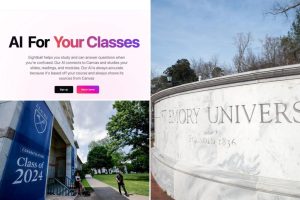I. Introduction
A. Setting the Scene
B. The Journey Begins
II. The Early Years
A. Childhood Memories
B. Influential Figures
C. First Steps Towards Success
III. Trials and Triumphs
A. Facing Adversity
B. Breakthrough Moments
C. Lessons Learned
IV. Building a Legacy
A. Impact on Others
B. Achievements and Milestones
C. Reflections on Success
V. The Next Chapter
A. Future Plans and Aspirations
B. Continuing the Journey
VI. Conclusion
A. Looking Back
B. Final Thoughts
Write a story about a group of friends who discover an ancient treasure map and embark on a thrilling adventure to find the hidden treasure.
Artificial Intelligence (AI) has become increasingly integrated into our daily lives, revolutionizing various industries and transforming the way we work, communicate, and even live. From healthcare to finance, AI is reshaping the world as we know it. In this article, we will explore real-world examples of how AI is making a positive impact on society and changing lives for the better.
1. Healthcare
One of the most significant areas where AI is making a profound impact is in healthcare. AI-powered tools and technologies are helping doctors and healthcare professionals diagnose diseases more accurately and efficiently. For example, AI algorithms can analyze medical images such as X-rays and MRIs to detect abnormalities that may be missed by human eyes. This not only speeds up the diagnosis process but also improves patient outcomes by enabling early detection of diseases.
AI in Cancer Diagnosis
AI is also being used in cancer diagnosis to predict the likelihood of cancer recurrence and tailor treatment plans to individual patients. By analyzing vast amounts of patient data, AI algorithms can identify patterns and trends that help oncologists make more informed decisions about treatment options. This personalized approach to cancer care has the potential to improve survival rates and quality of life for cancer patients.
2. Finance
In the financial industry, AI is revolutionizing how banks and financial institutions operate. AI-powered algorithms are being used to detect fraudulent activities, predict market trends, and automate routine tasks such as customer service and account management. By leveraging AI, financial institutions can streamline operations, reduce costs, and provide better services to their customers.
AI in Investment Management
AI is also being used in investment management to analyze market data and make data-driven investment decisions. By analyzing historical market trends and predicting future market behavior, AI algorithms can help investors make more informed investment choices and maximize returns on their investments. This has the potential to revolutionize the way investments are managed and create new opportunities for investors.
3. Education
In the field of education, AI is transforming the way students learn and teachers teach. AI-powered tools such as personalized learning platforms and virtual tutors are helping students learn at their own pace and in a way that suits their individual learning styles. This personalized approach to education is improving student outcomes and making learning more engaging and interactive.
AI in Language Translation
AI is also being used in language translation to break down language barriers and facilitate communication between people who speak different languages. AI-powered translation tools can translate text and speech in real-time, making it easier for people to communicate with each other across language barriers. This has the potential to foster global collaboration and understanding.
Summary
Artificial Intelligence is transforming various aspects of our lives, from healthcare to finance to education. By harnessing the power of AI, we can improve efficiency, accuracy, and innovation in these industries, ultimately changing lives for the better. As AI continues to evolve and advance, its impact on society will only grow stronger. Stay tuned for more updates on how AI is shaping our world!
The article discusses the importance of developing emotional intelligence in order to succeed in both personal and professional life. It emphasizes the need to understand and manage one’s own emotions, as well as the emotions of others, in order to build better relationships and make sound decisions.
These insights are crucial as emotional intelligence plays a significant role in our overall well-being and success. By being aware of our own emotions and how they affect our behavior, we can improve our communication skills, enhance our problem-solving abilities, and strengthen our relationships with others.
In conclusion, I would like to thank the readers for their time and encourage them to further explore the topic of emotional intelligence through additional reading and research. Developing emotional intelligence is a lifelong journey that can greatly benefit our personal and professional lives, so I invite you to continue engaging with this important subject.




